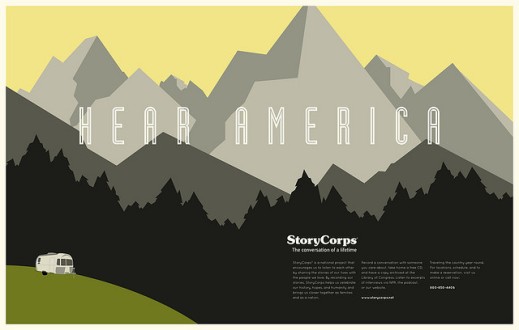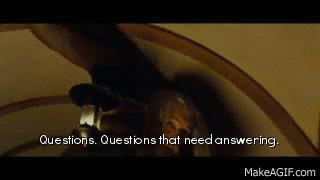Paradox
At the core of human experience is the paradox that we are both (1.) limited creatures with (2.) a consciousness and a symbolic sense of self that appears limitless.
We are creatures, animals, bound by fallible flesh that we know will die and decay.
Yet we can imagine possibilities beyond our actual physical abilities — to immortality, to self-creation.
I can see this paradox and how we deal with it as the beating heart behind many, if not all, of our individual and collective struggles as humans. And I expect I shall be exploring this subject in future writing…
Monsters
“I know I’m older, but there are still monsters in all of my closets
Sometimes I feed them and some, they get bigger than others
Depends on the day
Sometimes I’ll sit on the edge of my bed
And I’ll wait just to see them rear their ugly heads
Sometimes I just cannot face them
I know I’m taller, but there are still things that are out of my reach
One of my monsters, you ask him, he’ll tell you
He’s always reminding me
I’ll never get love just as much as I give it
My life will be hard for as long as I live it
You ask and they’ll tell you it all
Maybe if I sit and reason with them
Tell them they’ve got it all wrong
Maybe if I sit and reason with them
And tell them they’ve got it all wrong
I should be wiser, but all of these monsters
I let them get under my skin
One of them has the most hideous face
And he says that I look just like him
One of them, she’s so intelligent
She won’t acknowledge what I’d have to say
And she’ll tell you she knows it all”
“Monsters” by Lucius
Petty Cruelties
“Bigotry is seldom of the variety where you beat someone to death, burn a cross on their lawn, or similar violent acts. It’s the accumulation of petty cruelties that everyone seems to have no problem with. They don’t feel malicious, so they don’t seem to care that what they’re doing is hurtful, and when they get called on it, they claim it’s all in good fun…
In public discourse we tend to focus our attention on the most blatant and obvious incidences of racism, sexism, homophobia, etc…
Fighting oppression, though, also means educating ourselves about the more subtle, and insidious ways hatred and bias manifest on an individual and systemic level. It means learning to empathize with the lived experience of marginalized people – the regular, often daily humiliations, jokes, suspicions, ignorant or mean comments, insulting assumptions; the systematic lack of representation or negative representations of people like us in media and entertainment. Things that in isolation might be no big deal, but together add up to a steady stream of little indignities, a lifetime of constant messages that we’re worth less, or nothing at all, compared to the people who really matter.”
Read more of the post, Petty cruelties, by Grace at Are Women Human?
Stay or Go? Challenging the Gender Binary
In the post entitled Should We Stay or Should We Go? I began exploring the identities of groups of people and the tactics that individuals within groups use when they differ in some way from the group’s identity. Specifically, in that post, I was looking at religious group identities, but I did make a reference to the label of feminism, and it’s into the realm of gender identity that I’d like to traverse here now.
A couple of weeks ago, Slate gave us an interesting post by Vanessa Vitiello Urquhart, “Why I’m Still a Butch Lesbian.” The description, according to the post’s url, is “A butch lesbian rejects a non-binary identity.” This article is, no doubt, in response to the growing trend of people rejecting the binary gender group labels, male or female, that they’ve been assigned by their caregivers and society in favor of a larger, non-binary spectrum label, complete with newly created gender-neutral pronouns.
For clarity, we’re talking about gender identity, which is socially constructed, as it relates to biological sex. And this is a matter of binary labels versus non-binary labels (identifying as male or female versus genderqueer). The author of the post attempts to make a case for sticking with the binary group labels, even when non-binary labels are being created and advocated.
But let’s start from the beginning. Out there exists the current cultural view of what is feminine and what is masculine, and therefore, the behaviors and appearances that males and females are expected to adhere to. For some people, these expectations match their identity, and thus they apply gender labels respective to their biological sex and live without much questioning of the current binary system. But for those who feel the views and expectations of gender don’t match what they know to be true about their identity, does this mean they can’t identify as the gender that matches their biological sex? Does this mean that they can’t identify as either in the gender binary? It comes back to this question: When we, as individuals, differ from the group, do we change the label applied to us? Or do we demand that the label’s definition widen to include us? Do we stay or do we go?
In this article, Vanessa says that she best represents her identity when she wears clothing made for and marketed to men. “Once I’d started, I realized almost immediately that I was feeling far more comfortable and confident and that I liked the way I looked in the mirror for the first time in my life. Other people who knew me said I looked more natural, more like my clothing fit my personality. It felt a bit like I’d been wearing an uncomfortable, ill-fitting costume all my life.”
She states that other people who, like her, don’t fit the culture’s current preconceived notions of appropriate female-gendered behavior and appearance have “stopped identifying as women entirely.” She then presents the should I stay or should I go question, “So why have I, a female-bodied person who wears men’s clothing, decided to stick with the increasingly old-fashioned ‘butch lesbian woman’?” Because, after all, “popular culture, and women themselves, often imply that [she] lacks many of the most essential qualities of womanhood.” She muses, “Perhaps I’m not a woman after all.”
Her answer reflects her desire to be subversive under her given gender label and to work within the current binary, she claims for the sake of children, who at this time in our culture aren’t given a say in their own identities. Is this tactic of staying more effective than declaring the gender binary null and void, leaving it, and adopting the label of genderqueer? I, for one, have no answer. (For the record, I’m of the mind that you are the one who knows your identity best, you’re the one who can choose what labels best fit you, and it’s my job to respect your stated identity.)
There is no judgement from the author on those who choose to go — who forsake their given gender label — stating, “It’s wonderful that people who feel uncomfortable with the gender they were assigned at birth are gaining strength and visibility.” Her inclination is to stay with the label of woman for the purpose of widening the definition of female to include aspects of herself that current culture defines as more masculine than feminine. Instead of conforming to the expectations of gender identity, she demands gender bend to fit her identity. Instead of “these parts don’t fit, so I must not be a woman” it’s “these parts don’t fit so the ideas that culture has about women must need amending.” In a way, this could lead us to question our defining characteristics of male and female and, ultimately, the effectiveness of the binary itself.
“Perhaps one day the gender binary will be dismantled totally, and we’ll all stop limiting our children by bringing them up as either males or females. But, in the meantime, gender continues to be one of the first things children learn to recognize about themselves and others, and for that reason I think it’s important to keep the boundaries of what can and can’t potentially be male or female propped open as wide as possible.”
The Most Important Thing
“The thing is to understand myself: the thing is to find a truth which is true for me, to find the idea for which I can live and die. That is what I now recognize as the most important thing.”
― Søren Kierkegaard




